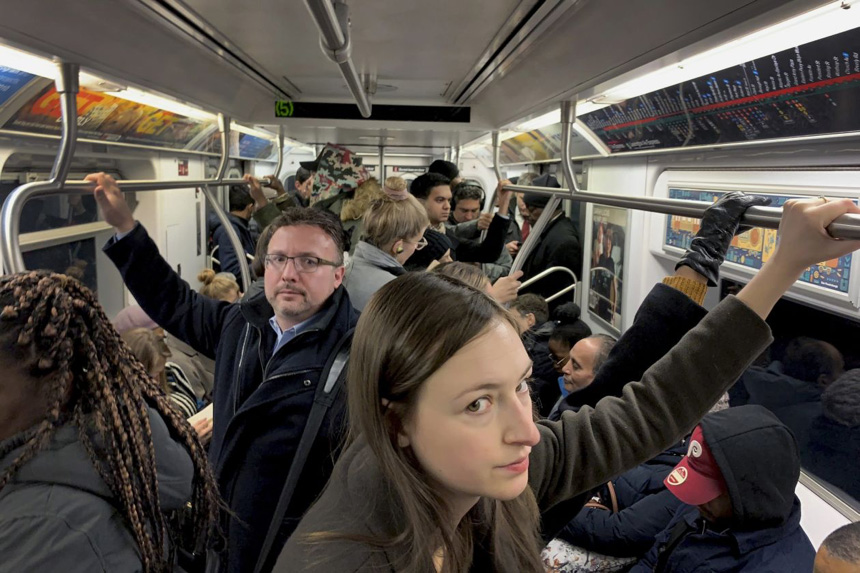
New York
As a young man sprints across a subway car to grab a seat before a tired elderly gentleman can get there, the train can barely contain the side-eye from other passengers. The incident seems insignificant, but it says something about society.
In 1899, Isaac Peebles published “Politeness on Railroads” to help Americans navigate a new mode of transport that had suddenly thrust people into close proximity—and to correct the “evil” of “too great laxity of true politeness.” He wouldn’t approve of the young man on the subway car. He enjoined the “strong and active” to “give special attention to the ladies, aged, feeble, and the cripple.” One maxim informs all others: “Let all look after the interest of one another, assisting one another when necessary.”
Politeness to Peebles meant more than “graceful manners,” “courtly conversation” and “rules of fashion.” It was an inner disposition, a heartfelt sentiment that grows “out of an assiduous self-denial and a constant consideration for the happiness of others.”
His advice may sound affected and fastidious, but it’s better than the nanny state. In the early 2000s, Mayor Michael Bloomberg launched a campaign against rude behavior. Subway riders could be fined $50 for resting their feet on a bench, theatergoers penalized for using their phones during movies and Broadway shows. New Yorkers didn’t take well to being “civilized” by their city government. The laws went largely unenforced and were ineffective.
If Americans recoil at admonitions to be courteous, it may be because they smack of old-world deference and offend our egalitarian sensibilities. Yet Tocqueville found that American manners, while less ornate than those of our aristocratic ancestors across the pond, were more benevolent and sincere. We were kind to others because of our shared humanity, not because we owed anyone submissivness. A boss and a subordinate were fundamentally equal: “Within
the terms of this covenant the one is a servant, the other a master; beyond it they are two citizens, two men.”
Charles Dickens did not much like America’s warm, informal social equality when he visited. “I take my seat in a railroad car, and the very conductor won’t leave me alone. I can’t drink a glass of water without having a hundred people looking down my throat,” he complained to a friend. James Boswell had a similar reaction when he visited Geneva in 1764. His host escorted him to a good seat at church. But “a fat, old woman” refused to relinquish it. He later called this “a nauseous example of the manners of republicans.”
It’s good that America rejects formal class distinctions and—Mr. Bloomberg notwithstanding— doesn’t try to enforce civility by law. But that makes voluntary acts of considerateness, Peebles’s politeness “from the heart,” all the more essential. Perhaps the seat-stealing youth on the subway learned that lesson from his fellow passenger’s disapproving looks.
Alexandra Hudson, a former civil servant and Rotary Scholar, is a writer in Indianapolis currently working on a book on civility. Follow her on Twitter @LexiOHudson.